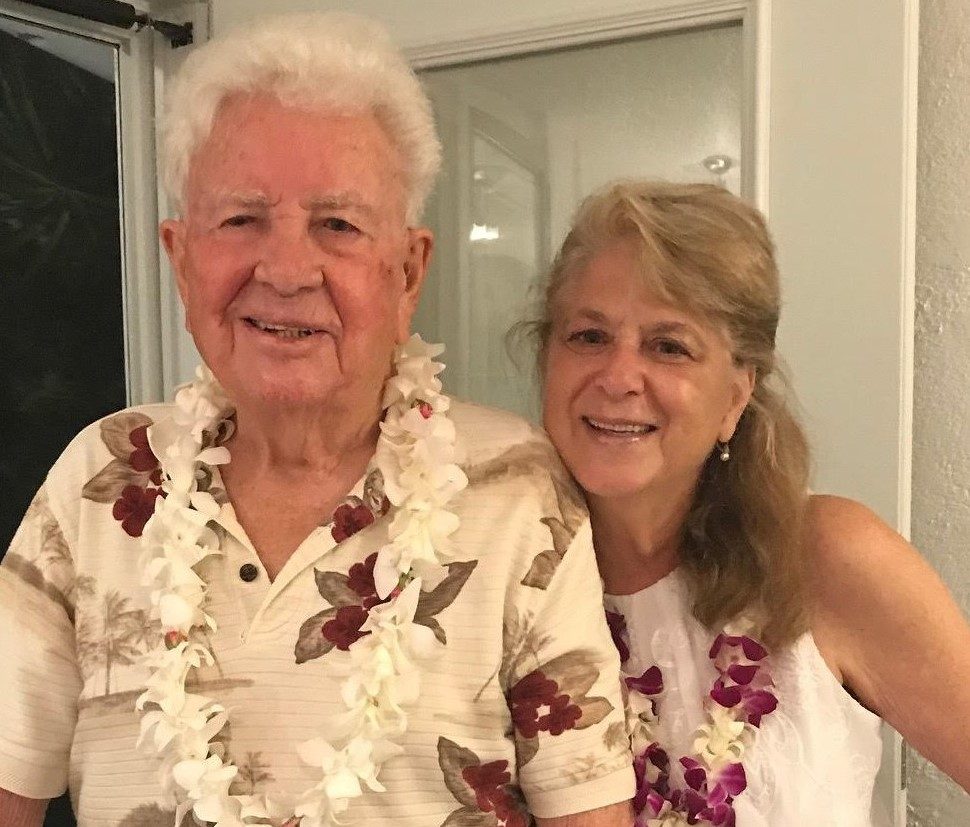
Their experiences at the University of Hawaiʻi John A. Burns School of Medicine (UH JABSOM) allowed Drs. Gordon Wallace and Diane Wallace Taylor to witness firsthand what the importance of research being conducted by graduate students is to the state of Hawaiʻi. They recognized the potential of the students in JABSOM’s Department of Tropical Medicine, Medical Microbiology and Pharmacology (T3MP) and saw the need to share their research findings locally, nationally and internationally. To help these students reach a wider audience, they started the Wallace-Taylor Endowment.
The Wallace-Taylor Endowment was created with strong conviction of the importance for students to share their research results they obtain through countless hours in the laboratory and conducting field research. Both Wallace and Taylor spent a majority of their respective careers doing their own research and sharing the results with other scientists.
Before Wallace became an adjunct professor at JABSOM, he conducted research on tropical diseases that allowed him to work throughout the Pacific islands and helped identify the pathogens that cause rat lungworm disease and toxoplasmosis. Taylor spent a portion of her career in Africa conducting research on malaria while on the faculty at both Georgetown University and in the T3MP department at JABSOM. It was through their years of research they realized how critical it is for scientists to engage in data sharing and peer review.
“We recognized the importance that attending national and international meetings played in our careers,” Taylor explained. “Networking at meetings is a really important part of a career in research.”
Networking allowed Wallace and Taylor to meet other scientists conducting studies in the same area of research. This allowed them to acquire new ideas, learn about on-going research in other laboratories, as well as establish collaborations with their colleagues. While there are always opportunities to go to meetings, it is difficult for Hawaiʻi students to attend due to the total cost of the experience. Students can apply for grant support, usually to multiple sources, but still only get partial funding for the total cost of attending meetings. Expenses include airfare, accommodations, registration fees, and oral and poster presentations.
The Wallace-Taylor Endowment also covers the expense for publication of peer-reviewed journals, which has risen significantly in past years. In fact, today, the cost to publish a manuscript can be between $1000 to $3000.
“Scientists, including graduate students, design and conduct experiments to answer important questions in biomedical research…If they don’t communicate the results with others, the new information is lost,” said Wallace. “The best way to share new results and discoveries is to publish the results in peer-reviewed journals.”
For Wallace and Taylor, the gift is also a way to show their gratitude to UH for helping Taylor start her career. Not only did Taylor work at JABSOM for 12 years before her retirement, she also graduated from the University of Hawaiʻi with a doctorate in Zoology and did her postdoctoral at UH in Tropical Medicine.
Ultimately, the two hope that their contribution will not only support current and future graduate students in communicating their research findings to a wider network, but to also highlight the needs of graduate students. They believe that any contribution, however big or small, can go a long way to helping students work towards improving health in Hawaiʻi.
About the Donors
After graduating from veterinary school, Dr. Gordon Wallace started his career studying the control of rabies and arthropod-borne viruses as a commissioned USPH officer in Epidemic Intelligence Service at the CDC. He completed research work in Polynesia, Melanesia, and Micronesia, where he identified the life cycle of rat lungworm disease and Toxoplasma gondii. He was assigned to the Hawaiʻi State Health Department, joined the National Institutes of Health (NIH) agency in Honolulu, became the Associate Director of the Intramural Research Program at the National Institute of Allergy & Infectious Diseases, and served as the Senior Policy Analysis for the Life Sciences in the White House Office of Science and Technology Policy.
Dr. Diane Wallace Taylor earned her PhD in Zoology from the University of Hawaiʻi, researching pathogenesis of the cat liver fluke disease. She completed a postdoctoral fellowship at NIH on malaria, joined the faculty in the Department of Biology at Georgetown University, where she taught immunology and established a research program on malaria immunity. Her research accomplishments include forming a research program in malaria in pregnant women in Cameroon and assisting industrial partners in developing a point-of-care test now used worldwide to diagnose malaria, among others.
Both have taught at JABSOMʻs Department of Tropical Medicine, Medical Microbiology and Pharmacology. Taylor continued her research on malaria at T3MP while both mentored graduate students in biomedical research. They hope this gift will inspire future gifts towards advancing graduate student research and education.